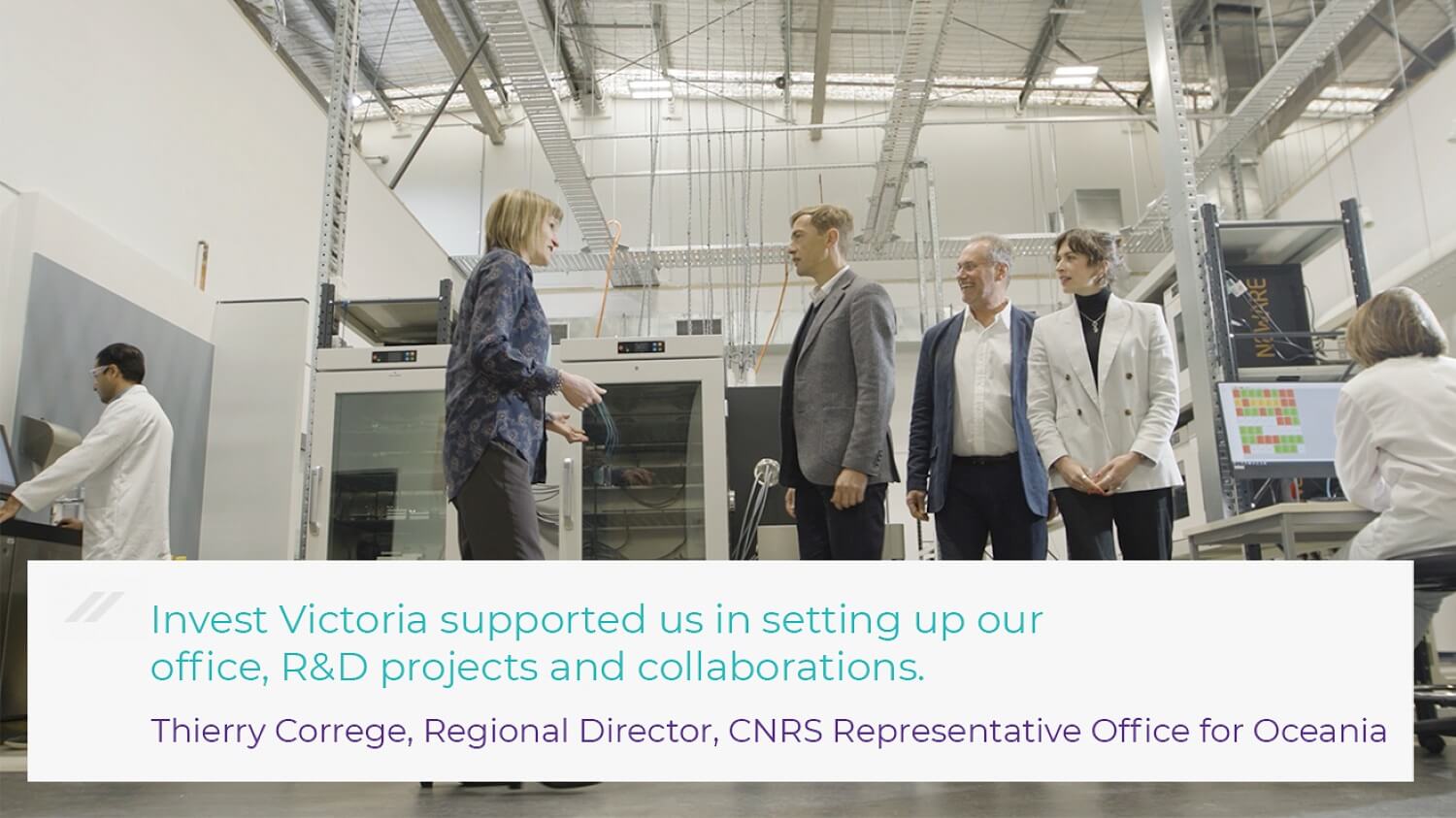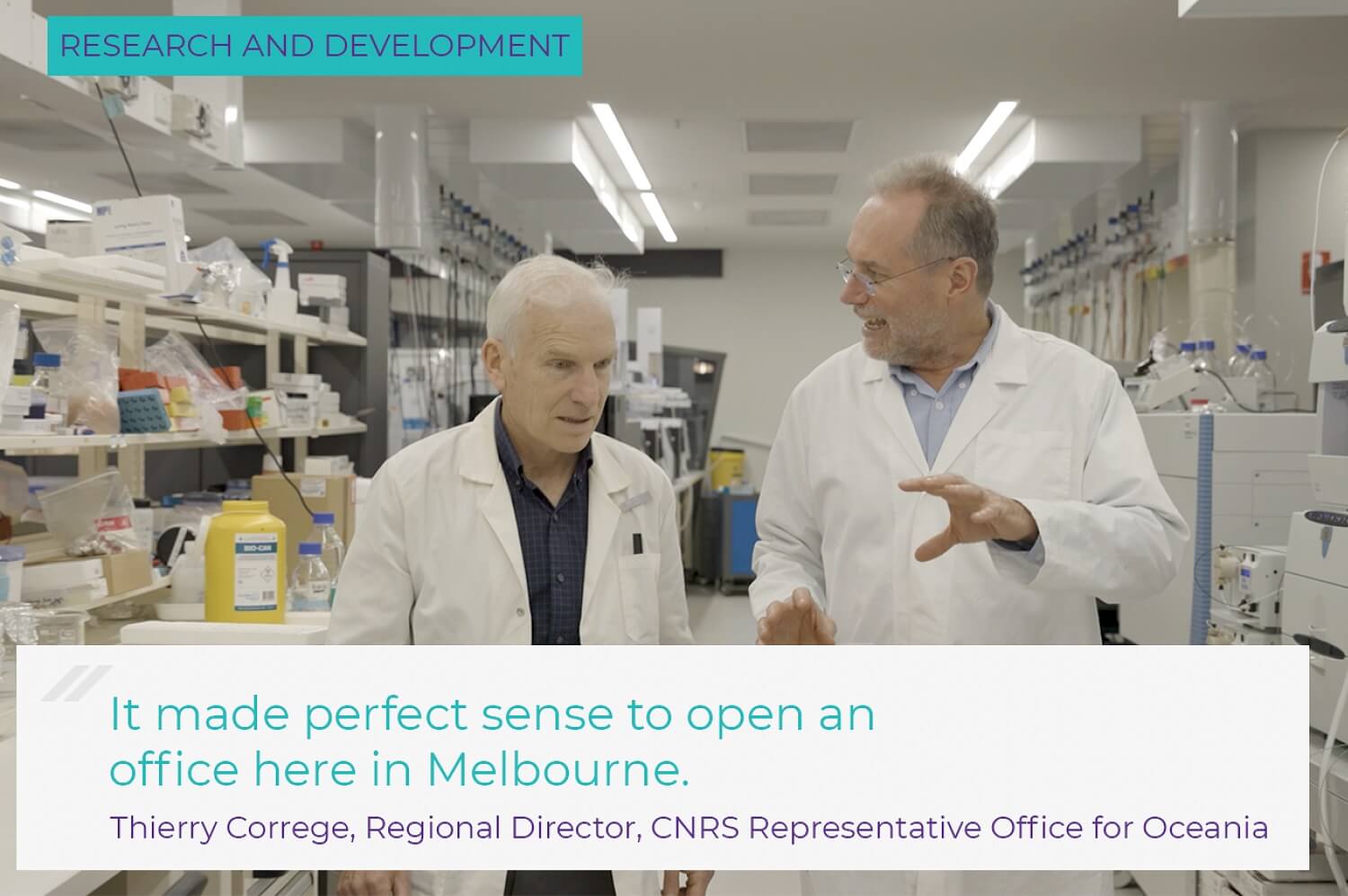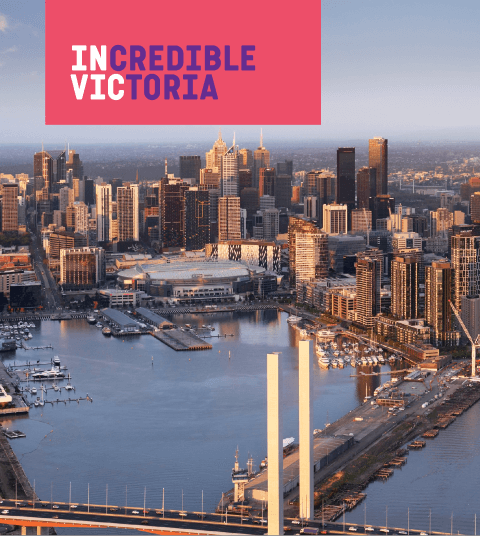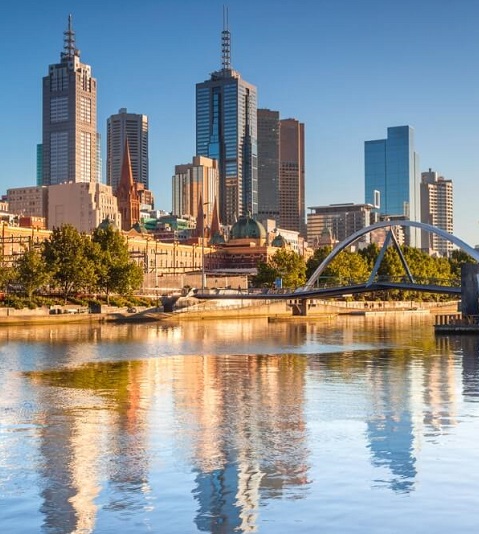3 MINUTE READ
CNRS chooses Melbourne for its Oceania base
The Investment
(FRANCE 2022)
Europe's largest public research organisation, the Centre National de la Recherche Scientifique (CNRS), has recently opened a representative office for Oceania in Melbourne, Australia.
The Story
Founded in 1939 and headquartered in Paris, the CNRS has a remarkable history of collaboration with leading research centres and universities worldwide. Renowned for its multi-field research, the CNRS has earned prestigious accolades, including 21 Nobel Prizes and 12 Fields Medals. In the 2021 Scimago Institutions Rankings, the CNRS was recognised as the second most important global research institution in terms of scientific publications.
The CNRS was looking to advance scientific partnerships in Oceania.
Professor Thierry Correge, Regional Director, CNRS Representative office for Oceania
The CRNS was looking to advance scientific partnerships in the Oceania region in fields such as energy, hydrogen, artificial intelligence, engineering, environment, astronomy, biosciences, climate, and oceans. Over time, the institution has established itself as the leading contributor to Australian internationally co-authored research publications. The University of Melbourne was their first such partner and has been their number one Australian partner ever since. It made perfect sense for them to build on the existing relationships they had in the market and to open a representative office in Melbourne.
Melbourne was also attractive to the CNRS for its reputation in innovation and for its world-leading ecosystem of multi-sector research institutes and networks that foster a highly collaborative and innovative culture. Melbourne is ranked as Australia’s most innovative city according to the 2ThinkNow Innovation Cities Global Index and Intelligent Community Forum (ICF) Innovation Ranking and is credited with having word-class expertise in scientific research and development. The CNRS was attracted to Melbourne for its more than 76,000 skilled researchers and staff that work across various disciplines, achieving significant advancements in biomedical engineering, neuroscience, condensed matter physics, nanotechnology, immunology, architecture, economics, psychology, astronomy, and space sciences.

Picture 1: Professor Thierry Correge with Professor Malcom McConville at the University of Melbourne. Picture 2: Professor Thierry Correge with Professor Jenny Pringle and Invest Victoria staff at Deakin University's Battery and Research and Innovation Hub.
The CNRS decided to co-located at the University of Melbourne, which is within close proximity to the CBD and the Melbourne Biomedical Precinct, Parkville, a world-renowned research centre with a focus on biomedical and social innovation. This new office will advance its research through collaborations and partnerships with local universities and research centres across various scientific fields.
The office was initially headed by Jean-Paul Toutain and later succeeded by Professor Thierry Correge, marking the tenth CNRS office worldwide. Its current and future staff will enjoy Melbourne’s vibrant and friendly environment whilst working with very accomplished scientific personnel. Further, the office will enable the CNRS to continue to build and strengthen local partnerships with universities and research centres in Australia and throughout Oceania. The CNRS office in Melbourne will also provide a gateway for both senior and junior researchers from the Oceania region to integrate and participate in research projects and networks with other French research and innovation organisations, as well as with the European Union.
Hear from Professor Thierry Correge about their investment journey - click to play video
How we helped
Invest Victoria assisted us with senior corporate connections and introduced us to into promising academic and research networks.
Professor Thierry Correge, Regional Director, CNRS Representative office for Oceania
Invest Victoria supported the CNRS in setting up their office and in identifying R&D projects and collaborations. They played a crucial role in connecting the CNRS staff into promising academic and research networks. Additionally, they helped with the coordination of visa and travel arrangements.
Looking to the future
The establishment of a representative office in Melbourne will enable the CNRS to continue to advance its research in through new collaborations and partnerships with local universities and research centres, allowing it to continue to make significant contributions to scientific knowledge that have global societal impact.
 Research and Development investment opportunities in Melbourne.
Research and Development investment opportunities in Melbourne.
To discuss opportunities for investing in Victoria Contact us.





